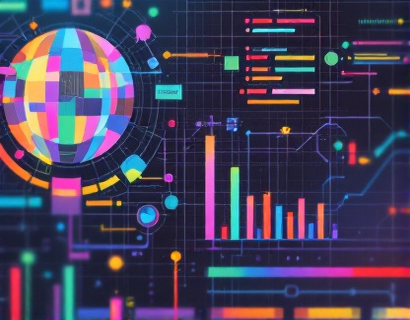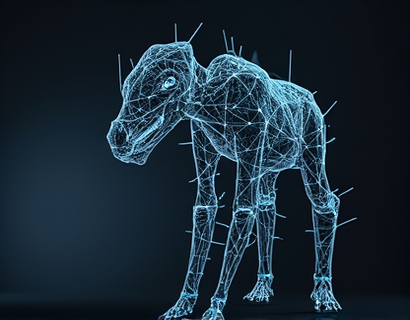Decentralized Authentication: Maximizing Business Security and Efficiency with Advanced Identity Management Solutions
In the digital age, the importance of robust security measures cannot be overstated. As businesses increasingly rely on digital platforms to conduct operations, the need for advanced identity management solutions has become paramount. Decentralized authentication stands out as a transformative approach, offering enhanced security and efficiency. This method shifts the traditional centralized authentication model, where a single point of failure can compromise entire systems, to a distributed network that enhances data protection and user experience.
Decentralized authentication leverages blockchain technology and distributed ledger systems to manage user identities. This approach ensures that no single entity has control over all authentication data, reducing the risk of large-scale data breaches. By distributing identity verification across multiple nodes, decentralized authentication provides a more resilient and secure framework for businesses to operate in.
Understanding Decentralized Authentication
To grasp the benefits of decentralized authentication, it's essential to understand how it differs from traditional centralized systems. In a centralized model, a central authority, such as a server or database, manages and verifies user identities. This central point can become a target for cyberattacks, leading to potential data breaches and unauthorized access.
In contrast, decentralized authentication distributes the responsibility of identity verification across a network of nodes. Each node maintains a copy of the identity data, and consensus mechanisms ensure that all nodes agree on the validity of a user's credentials. This distributed approach eliminates the single point of failure, making it significantly harder for attackers to compromise the system.
Enhanced Security Through Decentralization
One of the primary advantages of decentralized authentication is the enhanced security it provides. By eliminating the central authority, the risk of a single breach affecting the entire system is greatly reduced. Even if one node is compromised, the overall network remains secure due to the redundancy and consensus mechanisms in place.
Additionally, decentralized authentication often employs advanced cryptographic techniques, such as public-key infrastructure (PKI) and zero-knowledge proofs, to secure user data. These methods ensure that user credentials are never stored in plain text and that authentication processes are both secure and private.
Improved User Experience
Beyond security, decentralized authentication also offers a superior user experience. Traditional centralized systems can be cumbersome, requiring users to remember multiple passwords and undergo repetitive verification processes. Decentralized solutions streamline this by enabling seamless and frictionless access to various services and applications.
For instance, users can authenticate once and gain access to multiple services without the need to log in repeatedly. This not only saves time but also reduces the frustration associated with complex authentication protocols. The user-centric design of decentralized authentication ensures that security measures do not hinder productivity or convenience.
Operational Efficiency for Businesses
For businesses, the adoption of decentralized authentication can lead to significant operational efficiencies. By automating and streamlining the authentication process, companies can reduce the workload on IT departments and minimize the risk of human error. This automation also allows for real-time monitoring and management of user access, enabling quicker responses to security threats and compliance issues.
Moreover, decentralized authentication solutions can integrate seamlessly with existing systems and applications, making the transition smoother and less disruptive. This flexibility is crucial for businesses that need to maintain continuity while enhancing their security posture.
Case Studies and Real-World Applications
Several industries have already begun to adopt decentralized authentication solutions, reaping the benefits of improved security and efficiency. For example, in the financial sector, decentralized authentication has been used to secure online banking and trading platforms. By implementing these solutions, financial institutions have seen a reduction in fraudulent activities and an improvement in customer trust.
In the healthcare industry, decentralized authentication ensures that patient data remains secure and accessible only to authorized personnel. This is critical given the sensitive nature of health information and the stringent regulatory requirements. By using decentralized methods, healthcare providers can maintain compliance while enhancing data protection.
Challenges and Considerations
While the benefits of decentralized authentication are clear, there are also challenges and considerations that businesses must address. One of the primary challenges is the initial implementation cost and the need for technical expertise to set up and maintain the decentralized network.
However, these costs are often offset by the long-term savings and reduced risk of security breaches. Additionally, as the technology matures and more solutions become available, the barriers to entry are decreasing. Businesses should also consider partnering with experienced providers to ensure a smooth transition and optimal implementation.
Future Trends in Decentralized Authentication
The future of decentralized authentication looks promising, with ongoing advancements in blockchain technology and distributed systems. One trend is the integration of decentralized identity (DID) frameworks, which allow users to own and control their digital identities. This shift empowers individuals and businesses to manage their identities more securely and privately.
Another area of development is the incorporation of artificial intelligence (AI) and machine learning (ML) to enhance the security and efficiency of decentralized authentication systems. AI can help detect anomalies and potential threats in real-time, further strengthening the security posture of businesses.
Conclusion
Decentralized authentication represents a significant leap forward in business security and efficiency. By leveraging advanced identity management solutions, organizations can protect sensitive data, streamline user experiences, and operate with greater resilience. As the technology continues to evolve, businesses that embrace decentralized authentication will be better positioned to thrive in an increasingly digital and interconnected world.











































